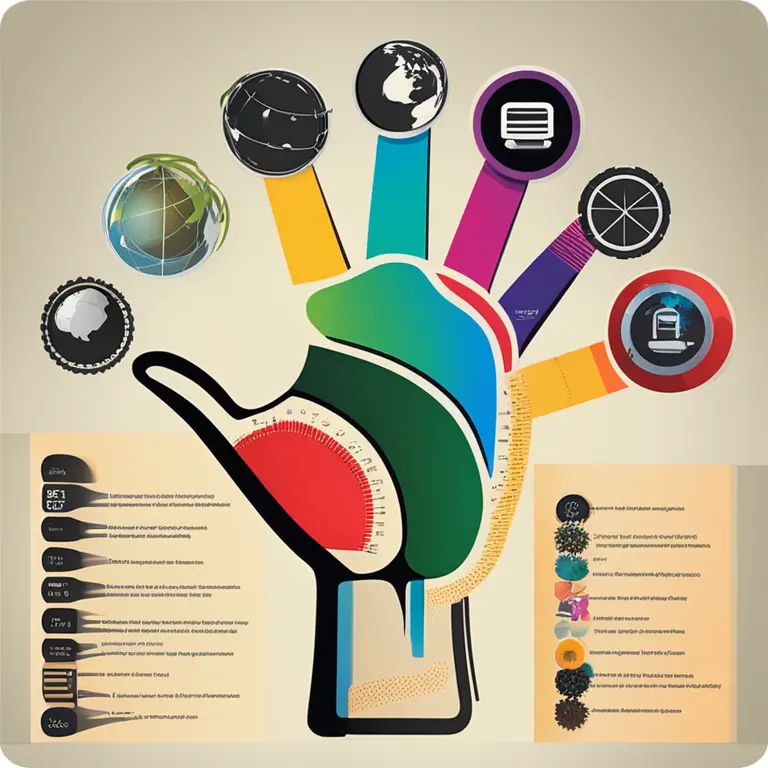
The Connection Between Palmistry and Health
This article delves into how palmistry can offer insights into an individual's health, examining the lines and features on the hands that may reflect physical well-being.
article by Nora Pennington
The Link between Palms and Well-being
Many have long believed that our palms hold the secret keys to our overall health. Palmistry, or chiromancy, is the ancient practice of interpreting the lines and features of the hand. Historically, practitioners claim that these lines and mounts can reveal not just character traits, but also health tendencies and potential health issues. Even Hippocrates, the father of medicine, is said to have considered the hands as a way to pinpoint health problems. The modern take on palmistry marries intuition with a deep understanding of the human anatomy, offering a unique perspective on one's physical state.

Visualizing Vitals through Palm Lines
One of the primary aspects of palmistry focuses on the heart, head, and life lines. The heart line is often examined for cardiovascular health indications. A clear, deep, unbroken line might be viewed as a sign of a strong heart, while breaks could indicate potential heart concerns. The head line, analyzing mental well-being, might reveal intellectual vitality or conversely, mental disruptions. Similarly, the life line, often misinterpreted as a measure of lifespan, may provide insight into one's vitality and vigor, reflecting the individual's general physical constitution rather than the length of their life.

Assessing Mounts and Fingers
Beyond the lines, palmists consider the mounts – fleshy pads on the palm associated with different planets and corresponding to different parts of one's life. For instance, the Mount of Venus near the thumb is linked to love, beauty, and also the health of reproductive organs. A well-defined Venus mount might suggest a robust physical condition and a strong immune system. Fingers, too, play a role; they are thought to indicate finer details about one's health. For example, flexible fingers are associated with a flexible body and mind – potentially pointing to a healthy nervous system.

Colors and Textures in Health Indications
Colors and textures on the palm and fingers also hold special significance in health-related readings. A pinkish hue on the palm is generally seen as a sign of good health, while a pale or bluish tinge may suggest poor circulatory health. Red and flushed palms might be interpreted as a symptom of hypertension. The skin's texture, its lines and even the quality of fingernails – brittle or strong, ridged or smooth – all these attributes contribute to crafting a more nuanced picture of an individual's health profile.

Modern Palmistry and Health Science
In our current era, palmistry intersects intriguingly with science, particularly with medical disciplines such as dermatoglyphics, which studies the patterns of fingerprints and skin folds. These patterns are scientifically proven to be connected with genetic disorders and are thereby used in diagnostic procedures. Forward-thinking palmists integrate such knowledge to refine their interpretations and to provide more substantiated health insights, bridging ancient wisdom with present-day scientific understanding.
Responsible Practice and Limitations
It is important to note that while palmistry can offer intriguing hints about one's health, it is not a diagnostic tool and should never replace professional medical advice. Ethical palm readers always recommend that clients seek out healthcare professionals for any serious concerns. Where palmistry excels is in its ability to encourage individuals to be mindful of their health and to notice changes that might warrant further investigation by a doctor.
Published: 1/29/2024
Modified: 1/29/2024
More predictions
Come back here soon to learn more about yourself and your future


The Significance of Vertical Lines in Palmistry
Discover how vertical lines on the fingers relate to personal qualities and potential life paths in the practice of palmistry.


Unlocking The World of Palmistry Healing
Discover the nuances of palmistry healing, the ancient art that interprets hands to promote wellness and guide life choices.


The Mystery of the Palmistry Health Line
Decode the mysteries of your vitality through the intricate details of the palmistry health line.